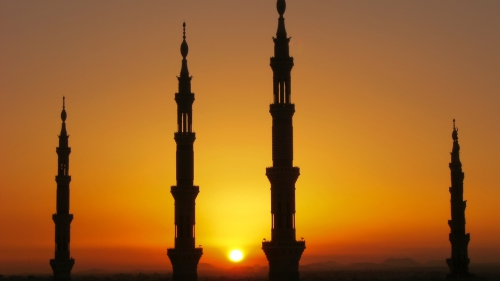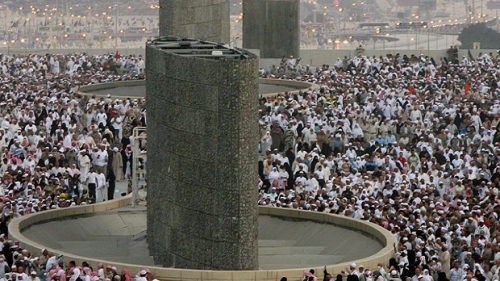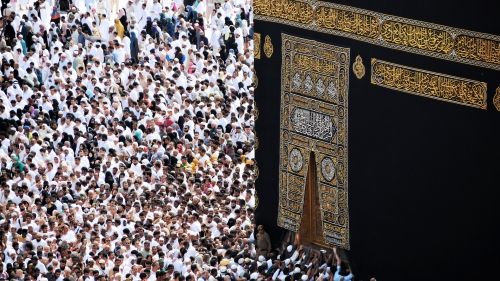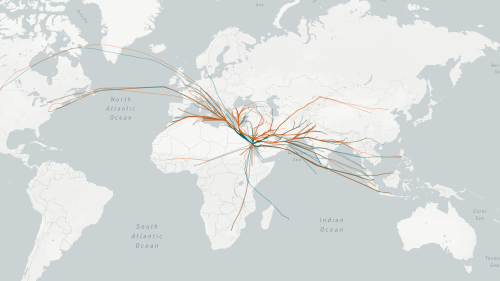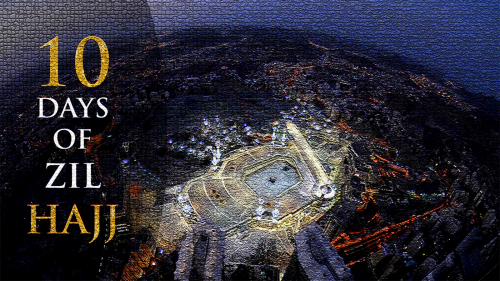The Search for Equilibrium: Another Ramadan in Pandemic

The world enters a second Ramadan in a COVID-19 global pandemic. The world is no longer the same. It seems unusual and uncertain. No one could ever have imagined that our world would change so radically, so considerably, so significantly, so suddenly; perhaps irreversibly.
All this, due to a microscopic virus that has initiated a swiftly accelerating crisis that has strained the functioning capacity of the world and continues to cause colossal devastation. It has taken the world captive, making its catastrophic effects felt by all human beings in every part of the earth; thus far infecting over 142 million people and causing over 3 million deaths.
The pandemic has ushered in a crucial time, probably a defining moment in human history, and certainly a critical period in our lives. Humanity is collectively facing the fragility and vulnerability of the human situation, swimming in a sea of uncertainty against a tide of emotional discomfort, trying to navigate an unfamiliar reality without the shore of relief in sight.
Human beings, by nature, yearn for a degree of certainty in life because it provides a sense of balance, a level of assurance, a feeling of control and the potential for planning. Without such certitude people feel insecure, unstable and unsure. But we are living in an ever-changing world filled with uncertainty. This is the inescapable reality of our existence. The only thing "permanent is the countenance of Allah, Possessor of majesty and honor" [Quran 55:27]. The secret is to realize precarious nature of life and to place trust in the permanence of the Permanent, for "Everything except Allah, is perishable" [Bukhari]
With the constant sense of trepidation, desperation, apprehension and insecurity caused by the pandemic, it is absolutely important to find some sanity and stability in our lives. The recurring month of Ramadan provides the possibility of constancy, turning to Allah and pursuing taqwa; the primary objectives of fasting. We know that Ramadan is a month of heightened consciousness, a month of fasting, of increased worship, of spiritual revitalization, of philanthropy and compassion. It is an ideal time to enter into reset mode, to bring the objectives of Ramadan to bear on our unprecedented pandemic experience.
COVID-19 has surely taught us to acknowledge that we are a world of common problems and shared solutions; we are all in this together, one humanity; what harms one harms the other. This is the era of awakening to the power of human potential, re-awakening to the necessity of human responsibility, rededication to doing what is good and reprioritizing what is essential.
Each one of us individually and all of us collectively must choose to be agents of ihsaan; of goodness, of healing, and growth if we are to create a hopeful and sustainable future for those with whom we share this world. Among our immediate collective tasks as a human family is to re-imagine the world we want to live in and in what tangible ways we could bring a degree of equilibrium into the ethical, spiritual and social realms of our lives. Being at a pivotal juncture in human history, how we respond now will determine whether we progress as a unit or stagnate as a family.
It remains our moral duty to follow health protocols, in keeping with the Prophetic directive, "Neither harm others nor allow yourself to be harmed" [Ibn Majah]. It is incumbent upon us to continue to be safe, sanitize frequently, wash our hands regularly, wear face masks where mandatory, abide by the Covid-19 guidelines; staying socially connected but physically distanced. All this, not only to protect ourselves, but to ensure the safety and well-being of our families and our communities. Ramadan Kareem.
Shaykh Sadullah Khan serves as the CEO of Islamia College in Cape Town, South Africa. He completed studies in Law at University of Durban, South Africa, Journalism (UK) and Islamic Studies at Al Azhar University in Cairo, Egypt.
Topics: Coronavirus, Health, Humanity, Ihsan (Excellence In Faith), Pandemic, Ramadan, Taqwa (God Consciousness)
Views: 1180
Related Suggestions










